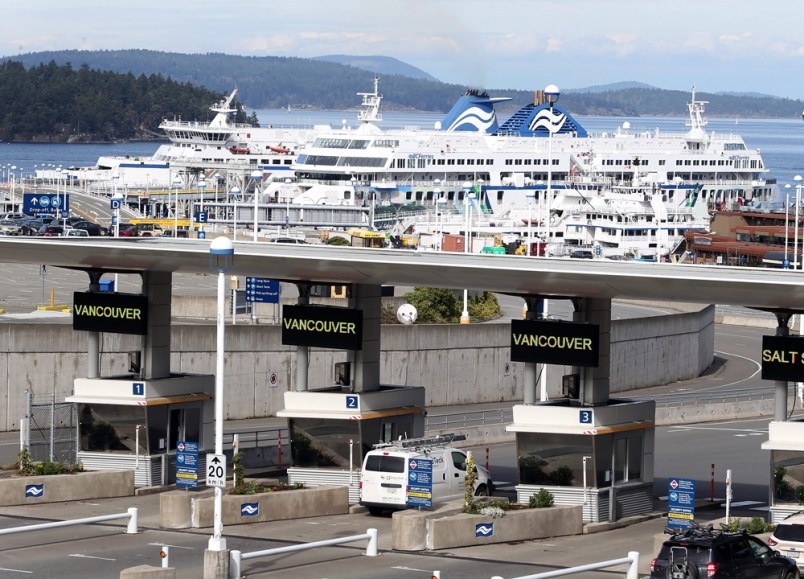Anyone who has flu-like symptoms or has returned from abroad within the previous two weeks will be denied boarding, said BC Ferries spokeswoman Deborah Marshall.
“We’ll put up posters at the terminals which will have screening questions, so customers can read those in advance and when they get to the ticket agent, the ticket agent can make sure they understand the questions being asked,” she said.
The change comes after Transport Canada announced new measures on Sunday regulating commercial passenger vessels and ferries aimed at reducing the risk of spreading COVID-19. The order includes guidelines for ferry and essential passenger vessel operators that health checks should be conducted where feasible on every passenger for trips longer than 30 minutes.
Marshall said BC Ferries will be ready to implement the screening measures when the order comes into effect at noon on Monday.
“We were already doing the majority of new regulations that they’ve got,” she said. “The missing piece was just the screening.”
The Transport Canada order also requires operators to reduce the maximum number of passengers by 50 per cent or implement other measures to reduce the risk of COVID-19, such as keeping passengers in their vehicles and using enhanced cleaning measures.
BC Ferries has seen about an 80 per cent drop in passengers due to COVID-19, and even with significantly reduced sailings, vessels are operating below 50 per cent capacity, Marshall said. The company has also stepped up cleaning and disinfecting efforts.
BC Ferries has asked passengers to avoid non-essential travel, in line with guidance from public health officials.
It’s unclear whether the company’s health checks will include questions about the purpose of travel, and whether Islanders returning from abroad and landing in Â鶹´«Ã½Ó³»would be allowed to board a ferry.
“We’re working out all the details,” Marshall said.
The order also prohibits all commercial marine vessels that can carry more than 12 passengers from engaging in any non-essential activities, like recreation and tourism, until at least June 30.
Canadian cruise ships are also prohibited from sailing in Canadian Arctic waters until Oct. 31. Foreign passenger vessels wanting to enter Arctic waters will need to give the minister of transport 60 days’ notice and meet certain conditions. The measures are intended to protect northern communities with limited public health capacity.
In the rest of the country, the start of the cruise ship season is postponed from April 2 to July 1 at the earliest.
Read more from the



